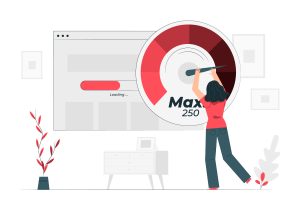
In today’s fast-paced digital landscape, the speed at which your website loads can make or break your online business. Slow-loading websites not only frustrate users but also adversely affect your search engine rankings. In fact, Google considers page speed as a crucial factor in determining search engine rankings. Therefore, it’s imperative for online business owners, bloggers, web developers, and programmers to optimize their website page speed for better user experience and improved SEO. In this article, we will explore the importance of website page speed, its impact on user experience and search engine optimization, and provide actionable tips for optimizing your website’s speed.
Why Page Speed Matters
User Experience
The attention span of online users is shrinking, and they expect websites to load instantly. Slow-loading websites lead to high bounce rates, decreased user engagement, and loss of potential customers. A fast-loading website creates a positive user experience, keeping visitors engaged and encouraging them to explore further.
Search Engine Optimization
As mentioned earlier, search engines like Google consider page speed as a ranking factor. Websites that load quickly are more likely to rank higher in search engine results, increasing their visibility and attracting organic traffic. Improved rankings translate to more visitors, higher conversions, and ultimately, business growth.
Optimization Techniques
Optimize Image Sizes
Large image files can significantly slow down website loading times. Use image optimization techniques such as compressing images without compromising quality, resizing images to the required dimensions, and using modern image formats like WebP for better compression.
Minimize HTTP Requests
Each element on a web page, including images, scripts, and stylesheets, requires an HTTP request. Minimize the number of HTTP requests by combining CSS files and scripts, reducing the number of images or using CSS sprites, and leveraging browser caching to reduce repeated requests.
Enable Browser Caching
Enable browser caching to store static resources such as images, CSS, and JavaScript files on visitors’ browsers. By caching these resources, subsequent page visits will load faster as the browser doesn’t need to download them again.
Use Content Delivery Networks (CDNs)
CDNs distribute your website’s static content across multiple servers worldwide. When a user visits your website, the CDN serves the content from the server closest to their location, reducing latency and improving page load times.
Minify CSS and JavaScript
Minification involves removing unnecessary characters and whitespace from CSS and JavaScript files. Minified files are smaller in size and load faster, enhancing website performance.
Optimize Server Response Time
Evaluate your hosting environment and ensure your server response time is optimal. Consider upgrading to a faster hosting plan, using a Content Delivery Network (CDN), or implementing server-side caching to reduce response time.
Prioritize Above-the-Fold Content
Load the essential elements above the fold first to provide users with a perception of faster loading. Optimize the critical resources necessary for initial rendering, such as CSS and JavaScript, to prioritize the visible content.
Regularly Update and Optimize CMS and Plugins
Content Management Systems (CMS) and plugins often release updates that include performance enhancements. Regularly update your CMS and plugins to take advantage of these improvements and ensure compatibility with the latest technologies.
Optimizing your website’s page speed is not just about improving user experience; it directly impacts your business’s success. A faster-loading website not only keeps visitors engaged but also helps boost search engine rankings, attracting more organic traffic. By implementing the optimization techniques mentioned in this article, online business owners, bloggers, web developers, and programmers can significantly improve their website’s performance, leading to better user experiences, increased conversions, and business growth in the competitive online landscape.
Remember, speed matters, so take the necessary steps to optimize your website page speed today!



